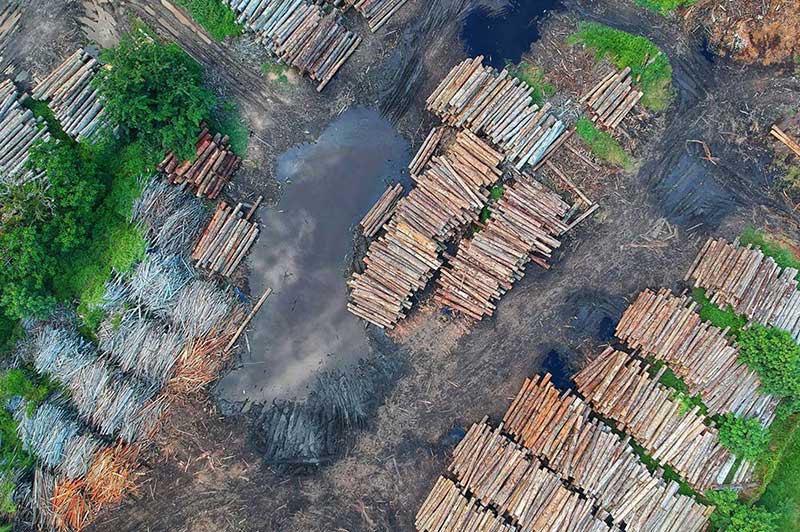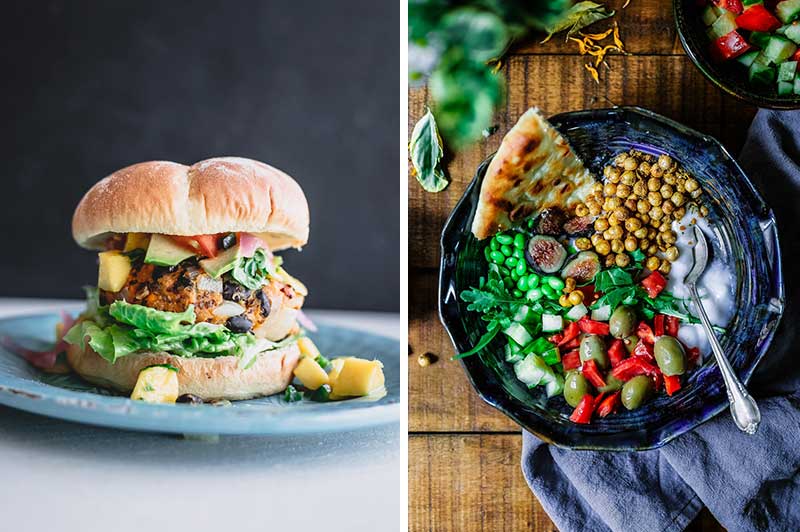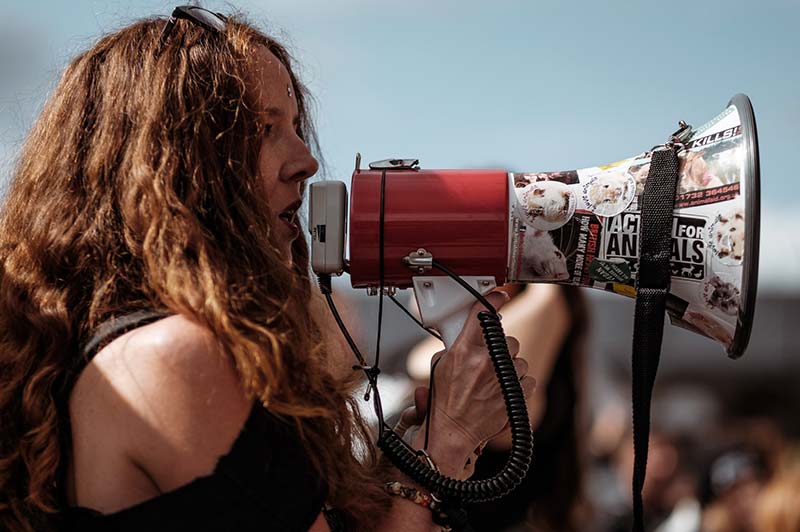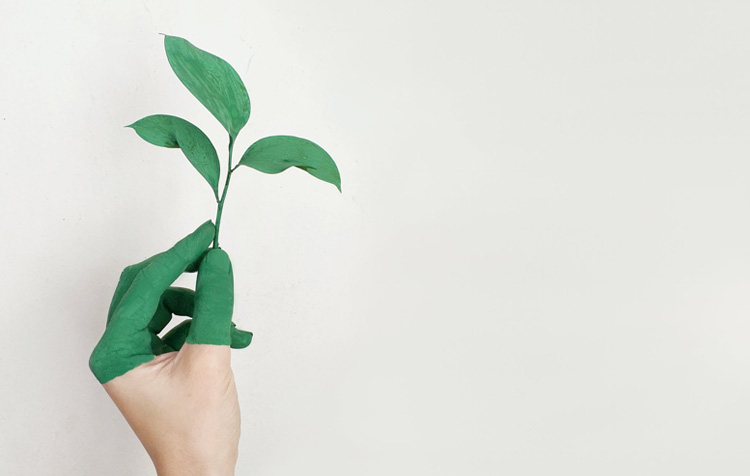Those who exemplify sustainability have to face many prejudices! The beauty of an environmentally conscious lifestyle is that there is basically no logical counterargument. That's why the typical misconceptions and myths are relatively easy to debunk. If you want to know the background of the biggest Environmental problems of our time and know about their approaches to solving the problem - you can even convince others to join you. sustainable life inspire.
In this article, I would therefore like to introduce you to some typical prejudices against sustainability - and give you some useful answers to refute them directly. Have fun!
8 Preconceptions about sustainability and environmental protection in everyday life
Not everyone deals with the topic of sustainability on a daily basis. That's why it doesn't bother me when I'm confronted with prejudices against an environmentally conscious lifestyle in discussions from time to time. I see these situations as an opportunity to convince others to live more consciously as well. Here are 8 prejudices that I hear particularly often - and how I would respond to them.
1. "Soy destroys the rainforest? Only vegans and vegetarians eat that anyway!"

You're right: soy is actually one of the plants that ends up on vegans' plates particularly often - mainly because it's so rich in protein. But of the harvest of the world's soybean crops, nearly three-quarters end up as crushed animal feed for the Factory farming₁, as cows, pigs or chickens grow particularly quickly as a result. Around 18 percent of the harvest is also processed₂ so that the product can be used as biodiesel or frying oil, for example. Only from about 2 percent are actually made into soy patties or other delicacies of the meatless diet.₃ However, this is usually European organic soy from GMO-free agriculture. Genetically modified soy is not even permitted as food for end consumers in Germany - but it is permitted as animal feed.
Soybean cultivation is therefore the main cause of the Deforestation of the rainforests. But the harvest doesn't end up as a vegan meal - it ends up as animal feed for the farm animals you eat. Instead, you could also eat soy products directly and help avoid the resource-intensive "detour animal". This would, by the way, also contribute to reducing the Stop world hunger.
Tip: This is really one of the biggest misconceptions about sustainability. Feel free to take a look at my supplementary article about the Reasons for veganism an.
2. "Birds are being killed for energy from wind power."
It is true that birds can be killed by wind turbines. One speaks of about 10,000 to 100,000 animals per year. With about 20,000 wind turbines nationwide, this would correspond to a rate of about 1 - 5 dead animals per wind turbine, per year.₄ At the same time, about 18 million birds also die annually from collisions with glass panes₅ - a much bigger problem that we hardly ever discuss in public. Just as little as the environmental destruction and the subsequent bird deaths caused by agricultural poisons. So we could do much more for the welfare of birds if we fought the main causes of bird mortality.
You should also not forget the conventional alternatives for wind energy. The generation of Coal-fired power is extremely resource-intensive, harmful to the climate, and releases toxic emissions such as sulfur oxides, nitrogen oxides, and dust. In addition, natural and settlement areas have to give way and be destroyed for opencast lignite mining. Hard coal is mined underground, posing a great danger to workers. And in order to generate energy from radioactive nuclear waste to be extracted, this must be absolutely securely sealed from the biosphere and from contact with us humans for centuries to millennia due to the long half-lives of the substances.
These non-future-oriented forms of energy generation are therefore ultimately extremely dangerous not only for the environment and animals, but above all for us humans. On the other hand, there are about 5 dead birds per wind turbine per year. A figure that can plummet even further, for example, by taking birds' flight paths and nesting sites into account when selecting sites.
Tip: Do you want to counteract bird mortality in your own greenery too? Then just take a look at the article about the Creation of a bird friendly garden over.
3. "The climate has always been changing."
That's right! The climate has always reacted sensitively to different environmental influences. The earth is several million years old - there have been ice ages and warm periods, even without human intervention. But, of course, that doesn't disprove our present influence on current climate change, which is happening about ten times faster than any before. So the same temperature increase as in the past does not take place today in 500 years, but in 50 years. It is scientifically impossible that such changes have a purely natural background.₆
Although we can draw few conclusions about the causes of today's climate change from past climate changes, we can at least learn from them about the consequences of global warming for life on Earth. Increasing Ice melt, flooding, droughts, and Extreme weather should be incentive enoughto become part of the solution to the biggest environmental problem of our time, instead of using natural climate change as an excuse for not having to change one's own behavior.
Tip: More input on this sustainability bias can be found in the post Stop climate change.
4. "You can't have 100 percent sustainability."
Why do you always have to do everything 100 percent perfectly? Living sustainably is not a sprint, but a marathon. A marathon in which you improve step by step because you learn new things every day. It doesn't matter whether you're reducing waste or slowly becoming a vegetarian or vegan. I don't do everything perfectly myself. But when I now think back a few months/years, I realize how much I have developed over time.
Instead of using your argument as an excuse, you should rather just start changing something in your everyday life. Replace for example expensive Water from plastic bottles through tap water from the reusable Stainless steel drinking bottle. Shop with a jute bag instead of a plastic bag. Just drive short distances more often By bikethan by car. Or consciously cook dishes that contain less meat. These are first steps that will be followed by many more if your personal attitude is focused on sustainability and its positive effect on yourself, the environment and our global society.
Tip: This sustainability prejudice is, of course, nonsense. Just try a soft start into sustainable living - and check out my post for Zero Waste Beginner an.
5. "Vegan diets are too restrictive - it's just too extreme."

I can understand why veganism seems limiting to you while you are completely new to the subject. But after a week of consciously vegan diet you will already have many herbal Alternatives for animal products know - and steadily get to know more. Because in fact, the vegan diet will open a door for you to so many different, varied and delicious dishes, as you can not yet imagine. You can continue Pizza, burger, pasta or lasagna eat. There is also vegan Cheesethat tastes the same as regular cheese. The only thing that changes: the vegan alternatives do not contain animal body parts.
And isn't it rather extreme that we fatten, torture, mutilate and finally gas, shred or slit the throats of 74 billion animals worldwide every year just so that we can eat parts of them afterwards??₇ Anyway, from the point of view of a cow or a pig, I could understand if you would call their life restricted and extreme.
Tip: Maybe I worded the last paragraph a little harshly. But if you look at some of these Documentaries about factory farming you will understand why I communicate this way.
6. "Zero Waste doesn't change anything."
The opposite is true - doing nothing changes nothing. If we want to stop the increasing masses of plastic waste that will remain on our planet forever, every individual must start with themselves. Every little bit of plastic waste in nature less, is a positive change. If you claim that "Zero Waste changes nothing", in my opinion you are simply thinking too short-term and not about the long-term common goal of protecting our planet and all living beings from plastic waste. With this attitude you remain part of the problem instead of becoming part of the solution.
The plastic free lifestyle Is solution orientedbecause it reduces personal plastic waste and thus also the waste of the limited raw material petroleum for unnecessary plastic packagingwhich are later largely burned off. Furthermore, since we are not aware of the effects of Plastics in the food chain While we are still in the dark about our health, a plastic-free lifestyle may even save us a large part of our lives. Less Microplastics in food, clean rivers and oceans, no animals dying from our garbage, and clean landscapes that you like to walk through. So please don't make sweeping claims, Zero Waste would not change anything.
7. "Being eco is totally unmanly."
It may be that women tend to be in the majority when it comes to environmental protection in everyday life. And it may also be that ecological behaviors tend to come across as somewhat "softer" and more "feminine." But what is unmanly about standing up against ills in our society and living a lifestyle that doesn't destroy the environment? Is it unmanly to meet up with buddies in nature and just not make or leave trash?
You should not categorize sustainable and future-oriented behavior in general as male or female - but as smart or not smart. Whether man or woman - ultimately, through our daily behavior, we are all either part of the solution - or continue to be part of the problem.
8. "I alone can't change anything anyway."

What would happen if everyone thought like that? Then everything on our earth would remain the same! Nothing would change. Albert Einstein probably already said: "The purest form of madness is to leave everything as it is and hope that something will change." Every person should assume that they can change something. The people who believe this will succeed and carry others along. "Alone", then, is at most the brief moment of deciding to change something in one's life to remedy a grievance.
If this is a problem that affects not only you but many other people, you will not be alone and get a ball rolling. This is definitely the case with an environmentally conscious, sustainable lifestyle. Logically, who wants animals to suffer for their own pleasure, the rainforest to disappear for their own garden table, or vast quantities of greenhouse gases to be blown into the atmosphere by their own daily behavior?
Tip: In the contribution called "I alone cannot change anything" I took another look at this argument in more detail.
Debunking sustainability prejudices and seeing it as an opportunity
Don't let common misconceptions about sustainability confuse you or sway you from your path - because you're do something good. Rather, take the opportunity to use these typical counterarguments as a chance to convince your conversation partner. It's best to ask thought-provoking questions instead of unleashing a barrage of facts.
Two high-impact examples:
"How long does a plastic bottle stay in the environment?", instead of "A plastic bottle stays in the environment for about 450 years."
"Why does a cow produce milk?", instead of "A cow produces milk because it has had a child to feed."
I hope that this article helps you personally - and that you can also inspire others for sustainability in everyday life.
Stay sustainable,

PS.: Also about the Zero Waste lifestyle there are prejudices. In the linked post you'll get to know them. Have fun!
References:
₁,₂,₃ Albert Schweitzer Stiftung für unsere Mitwelt: Warum Sojawurst nicht dem Regenwald schadet (Stand: 01.06.2018). https://t1p.de/jzvz. [09.08.2019].
₄ FOCUS Magazin Verlag GmbH: Oil runs out and wind turbines kill birds, available at https://t1p.de/annh. [08.07.2020].
₅ BUND NRW e.V.: Vogelschlag an Glas, available at https://t1p.de/lbv8. [08.07.2020].
₆ C. Steinlein; J. Marotzke: How skeptics deny climate change (as of Sept. 23, 2014), available at https://t1p.de/m0b6. [08.07.2020].
₇ Things Explained - In Brief: Meat - The World's Tastiest Evil, YouTube, Jan. 24, 2019, web, May 07, 2020 at 10:50 a.m., in: http://y2u.be/y6f3dwxexZM.





